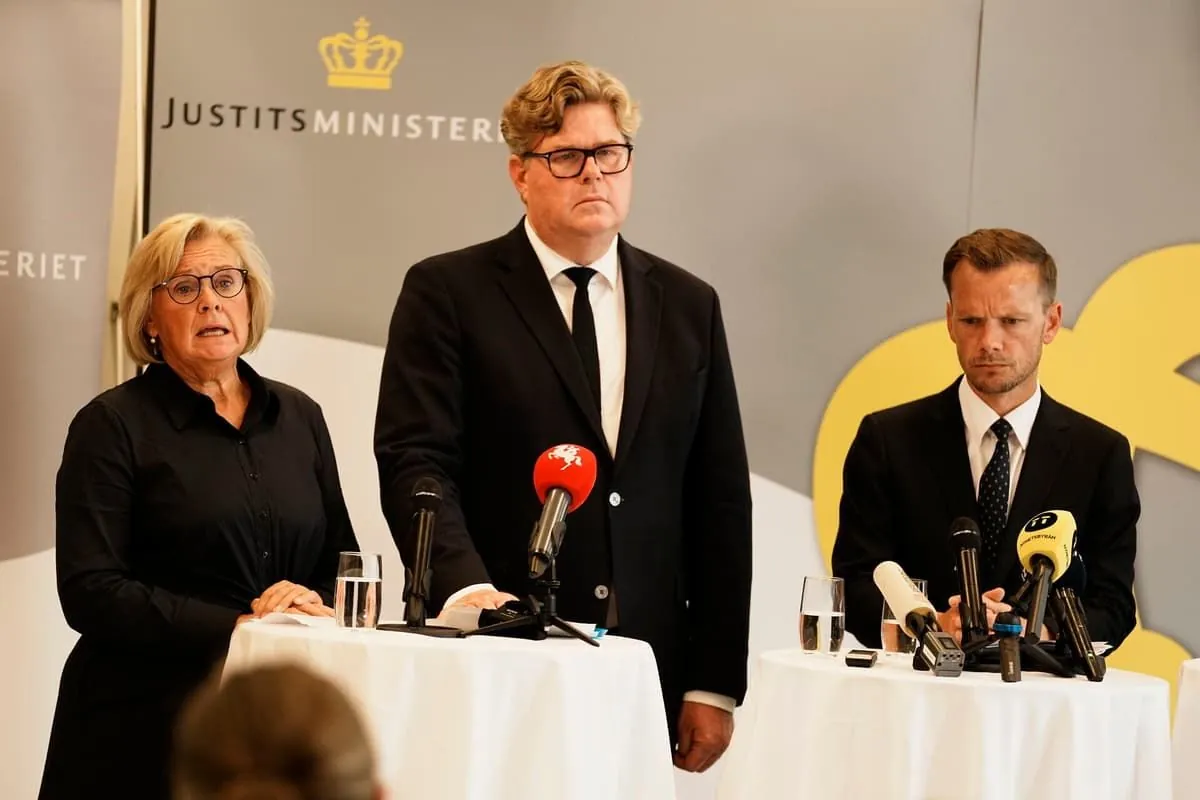Danish Minister's Comments on Messaging Apps Spark Controversy
Danish Justice Minister's remarks on banning messaging platforms misinterpreted online. Clarification issued, emphasizing legal impossibility of such action. Recent social media restrictions in Denmark highlighted.

In a recent development, Peter Hummelgaard, Denmark's Justice Minister, found himself at the center of controversy following comments about messaging platforms. His remarks, made during a joint press conference with his Swedish counterpart, were subsequently misrepresented online, leading to widespread confusion.
Hummelgaard expressed a personal desire to ban certain messaging platforms that facilitate criminal activities. However, he clearly stated that such action is "not legally possible" under current laws. The minister's comments were specifically directed at encrypted services and social media platforms like Telegram and TikTok, which he noted are often used to facilitate crime.
: "If it was solely up to my political intentions, I believe some of these services should be blocked or shut down. However, I acknowledge that this is not legally feasible as things stand, which is why we must continuously try to find new ways to prevent these services from being misused for such purposes."
The context of Hummelgaard's remarks was a discussion about pressuring tech companies over advertisements posted by gangs to recruit young Swedes for violent crimes in Nordic countries. This nuance was lost in the online misrepresentation, which falsely claimed that the Danish government might soon ban popular messaging apps like Signal, Telegram, and WhatsApp.
It's important to note that any bill proposing to ban messaging apps in Denmark would require three considerations in the Folketing, Denmark's parliament, before becoming law. This legislative process underscores the complexity of implementing such measures in a democratic system.

Denmark, a constitutional monarchy with a population of approximately 5.8 million, has recently taken steps to address concerns related to social media use. In February 2023, the Danish parliament banned its employees and lawmakers from having TikTok on official phones due to espionage risks. The Danish Defense Ministry followed suit a month later.
Furthermore, in May 2024, Danish Prime Minister Mette Frederiksen co-authored an article calling for the European Union to impose an age limit of 15 for social media use. This proposal reflects growing concerns about the impact of social media on younger users.
These actions highlight Denmark's proactive approach to digital security and social media regulation. As a member of the European Union and the Schengen Area, Denmark's policies in this area could potentially influence broader European discussions on digital privacy and security.
The controversy surrounding Hummelgaard's comments underscores the challenges faced by governments in balancing security concerns with digital rights and freedoms. As Denmark continues to navigate these complex issues, it remains committed to finding innovative solutions that protect its citizens while respecting legal boundaries.


































